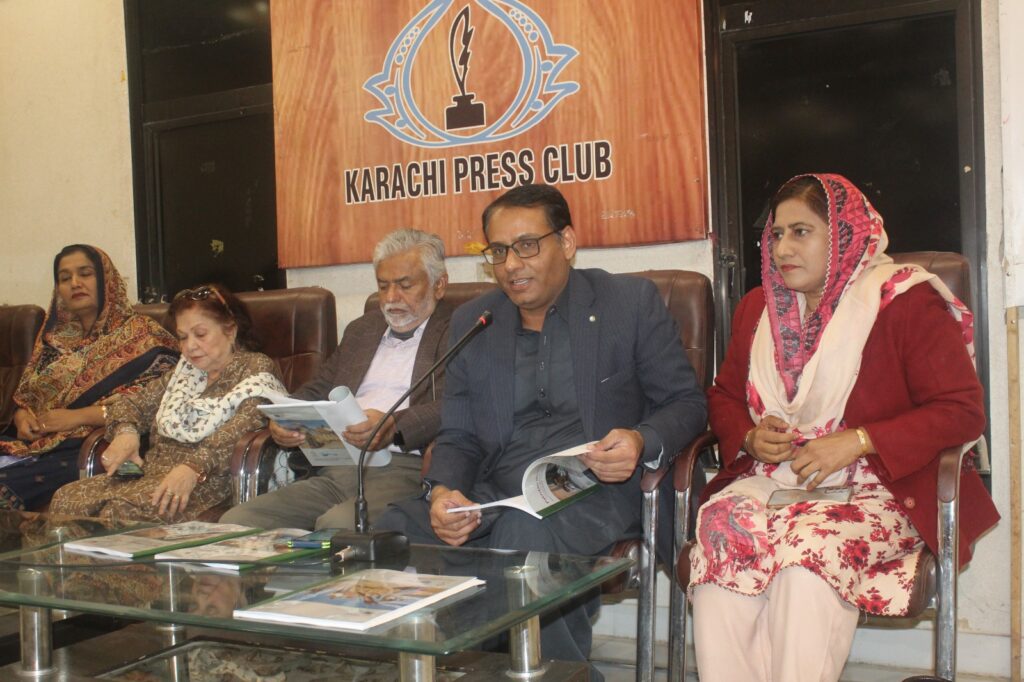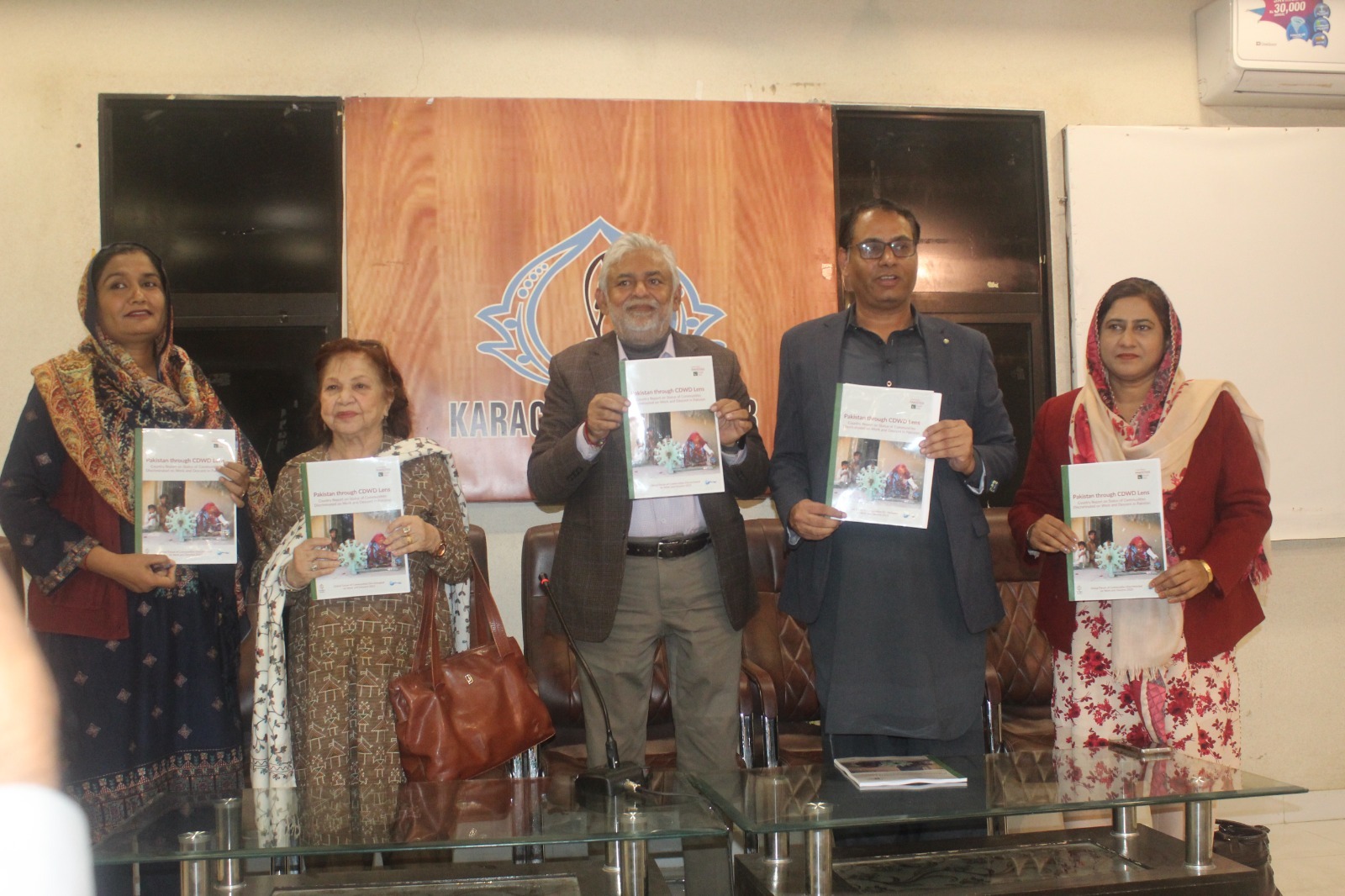Speakers Call for Rights of CDWDs in Pakistan
KARACHI, Jan 5: Human rights and minority rights activists and civil society representatives have urged the government to ensure adequate representation for scheduled caste Hindus in the assemblies. They highlighted that under the current electoral system, only upper-caste Hindus can reach the assemblies through reserved seats.
The speakers included Ms Anis Haroon, a Member of the National Commission for Human Rights (NCHR) for Sindh, Dr Sono Khangharani of Pakistan Dalit Solidarity Network, Pirbul Lal Satinyani, a Member of the National Commission for the Rights of Child, and members of PDSN Ms Bhagwani Rathor and Ms Pushpa Kumari, who were speaking at a press briefing and launching ceremony of a report of the “Country Report on Status of Communities Discriminated on Work and Descent in Pakistan” jointly organized by Pakistan Dalit Solidarity Network (PDSN) and The Knowledge Forum (TKF) at Karachi Press Club on Friday.
Ms. Anis Haroon emphasized that the research is an important document about Dalits. She said discrimination based on religion is a crime. The NCHR has ensured that the government will not write in the advertisements for the appointment of sanitary workers that minority communities are only eligible for the positions.
Dr Sono Khangharani pointed out that after the independence a six percent job quota was reserved for scheduled caste communities in the law. However, he highlighted that in 1995, the specific quota for the scheduled caste was converted into a quota for entire minority communities. He called upon political parties to provide scheduled caste-reserved seats and not include them in the overall minorities.

Pirbhu Lala Satiyan highlighted that scheduled caste in Hindus and janitor workers in the Christian community are facing discrimination and exclusion in Pakistani society. He emphasized that there are no facilities in the settlements of the CDWDs. This report is a ‘call to action' for providing their due rights according to the laws and Constitution of Pakistan.
Ms Bhagwani Rathor pointed out that scheduled cast people are under representative even in the national census.
Mr. Zulfiqar Shah said that a large number of scheduled castes are agriculture workers and they are deprived of even fundamental rights.
The report sheds light on the challenges faced by certain communities in Pakistan, such as Dalits and Christian minorities, who have long endured discrimination based on their work and descent. These communities are often confined to low-paying, menial labour and are denied fundamental human rights. The report aims to advocate for transformative change and address the systemic denial of rights faced by these marginalized groups.
The report has been carefully crafted through extensive research and data collection to provide an unbiased assessment of the daily struggles and historical contexts of these communities. It aims to amplify their voices, acknowledge their experiences, and uphold their rights. The report calls upon policymakers, civil society organizations, and individuals to utilize it as a catalyst for advocating meaningful change.
The report is not just a collection of facts, but a call to action. By understanding the challenges faced by these communities, it aims to inspire tangible reforms that ensure the rights, dignity, and opportunities of all citizens are respected. The report envisions a Pakistan where discrimination based on work and descent is a thing of the past, and where every citizen enjoys equal opportunities. It is a call for collective action to address the injustices faced by these communities and work towards building a more inclusive, equitable, and just Pakistan.
The report also acknowledges the efforts of the Global Forum of Communities Discriminated on Work and Descent, especially Paul Divakar Namala, Aloysius SJ, and Naveen Gautam, for conceptualizing the report's structure. Special commendation goes to the authors, Mr. Pirbhu Satyani and Ms. Bhagwani Rathore, for their dedicated efforts in ensuring the report's excellence.
In conclusion, the report is a powerful tool to advocate for the rights and dignity of all citizens and to work towards building a more just and inclusive society in Pakistan. It is a call for change and a catalyst for realizing a vision where every citizen enjoys equal opportunities and where diversity is celebrated as a strength rather than a source of division.
Read the full report by clicking on the link below:
https://drive.google.com/drive/folders/1_xHnNUaGbqj2y_sZDj3XTMGKmNitvVzc


